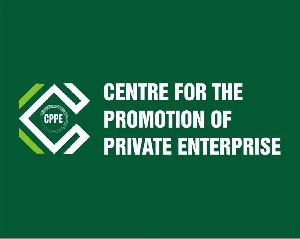Business News of Monday, 21 July 2025
Source: www.punchng.com
Lagos, Ogun face 500,000 land scam incidents annually — Report
According to Volume 3 of the State of Lagos Housing Market report, Lagos and Ogun collectively face more than 500,000 land scam incidents each year, underscoring a deep-rooted challenge in land administration and real estate transactions.
The report read, “Both private enterprises and the Lagos State Government have made concerted efforts to address longstanding challenges such as land fraud, inefficient record-keeping, and ambiguity surrounding real estate deals.
“A leading symptom of Nigeria’s broken land administration system is the staggering 95 per cent rate of land title contestation, highlighting the fragility of current property documentation. For instance, Lagos and neighbouring Ogun State experience over 500,000 land scams annually. This crisis has contributed significantly to the accumulation of over $150 bn worth of dead capital in real estate across Nigeria, where land and properties remain economically unproductive due to ownership disputes and titling.
“PropTech startups such as Sytemap are actively addressing systems. Sytemap’s platform digitises land ownership through blockchain-enabled land registry systems. Sytemp’s platform digitises land ownership records, ensuring that they are immutable and tamper-proof once entered.
This enhances data security and streamlines the property verification and audit process. The system utilises smart contracts embedded in property agreements, which automate compliance, reduce legal disputes, and eliminate issues commonly associated with manual documentation processes.
“Recent data reveals that Sytemap has tokenised over 99,763 sqm of land. Furthermore, more than 100 real estate companies, including major brands such as AlphaMead and Leadway Properties, already integrate Sytemap into their sales processes to showcase verified project layouts, boost buyer confidence, and accelerate sales cycles. Beyond tokenisation of land, Sytemap achieved this feat by integrating a map-based interface that displays high-resolution satellite imagery and enables users to verify precise parcel boundaries.”
The statement further revealed that Lagos State was also embracing PropTech solutions to tackle deep-rooted land governance issues and unlock the vast economic value trapped in unproductive real estate assets.
It added, “In late 2024, the state government announced plans to tokenise real estate properties within the state. This process involves converting property assets into digital tokens on a blockchain, with each token representing a share of ownership, similar to how stocks represent ownership in a company. Through the tokenisation initiative, where property transactions are securely recorded on the blockchain, the government hopes to ensure that records are tamper-proof, thereby providing a higher level of security and trust for investors.
“The propTech landscape is witnessing the adoption and adaptation of various technologies to address local market needs. The hierarchy of adoption appears to be led by technologies that offer immediate solutions to the most pressing market failures, primarily access to information (listing portals) and easing financial transactions (fintech solutions). More complex technologies like blockchain for land registries, while holding immense transformative power, are in earlier stages of adoption due to the need for broader ecosystem development and regulatory alignment. Below is an overview of key technological themes in the propTech ecosystem in Lagos.
“Meanwhile, the integration of property technology has significantly enhanced data analytics capabilities within the property sector. Companies like Estate Intel, Haap Living, and Property Pro.ng are leveraging data analytics to transform the real estate landscape in Lagos. These PropTech companies provide comprehensive data analytics services that uncover trends in market dynamics and investment opportunities. For instance, Estate Intel offers detailed reports and dashboards that track the sizes of residential, office, and retail markets, as well as rental and sale prices, along with ongoing projects in key African cities. This approach enables investors and developers to make data-driven decisions, minimising risks and maximising returns. Similarly, Righthome and Property Pro provide platforms that aggregate property listings, offering users access to several options. These platforms utilise data analytics to show market trends, helping customers find properties that match their preferences and budget. By analysing user behaviour and preferences, these platforms improve the user experience and enhance the efficiency of property searches.”
According to the report, Lagos’s real estate industry is rapidly evolving, driven by the emergence and growing adoption of PropTech.
“Traditional methods are giving way to digital solutions that are revolutionising the sector. This shift is not only improving user experiences for tenants, landlords, and investors but is also addressing long-standing challenges such as land fraud, rigid payment structures, affordable housing, and limited access to actionable market insights.
“Property listing, one of the earliest and most impactful applications of PropTech, has significantly transformed the way investors and homeowners advertise properties. Online marketplaces such as Nigeria Property Centre, PropertyPro, and BuyLetLive have become integral to property marketing in Lagos. These platforms allow users to browse thousands of property listings, complete with images, and utilise advanced filters to sort by price, location, amenities, and payment plans. The housing portal of startups like Righthome, Quickteller Homes, Spleet, Relsify, and Haap Living allows clients to filter between fully furnished, semi-furnished, and unfurnished homes as well as choose their preferred payment plan: monthly, biannual, or annual.
“This digital solution addresses the challenges of traditional property marketing methods, which often involve time-consuming physical visits and reliance on word-of-mouth or newspaper advertisements. The integration of the web is for managing listings, tracking enquiries, and analysing.”
The State of Lagos Housing Market, 3rd Edition, is published by the Roland Igbinoba Real Foundation for Housing and Urban Development. The first and second editions were published in 2009 and 2016, respectively.












